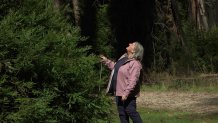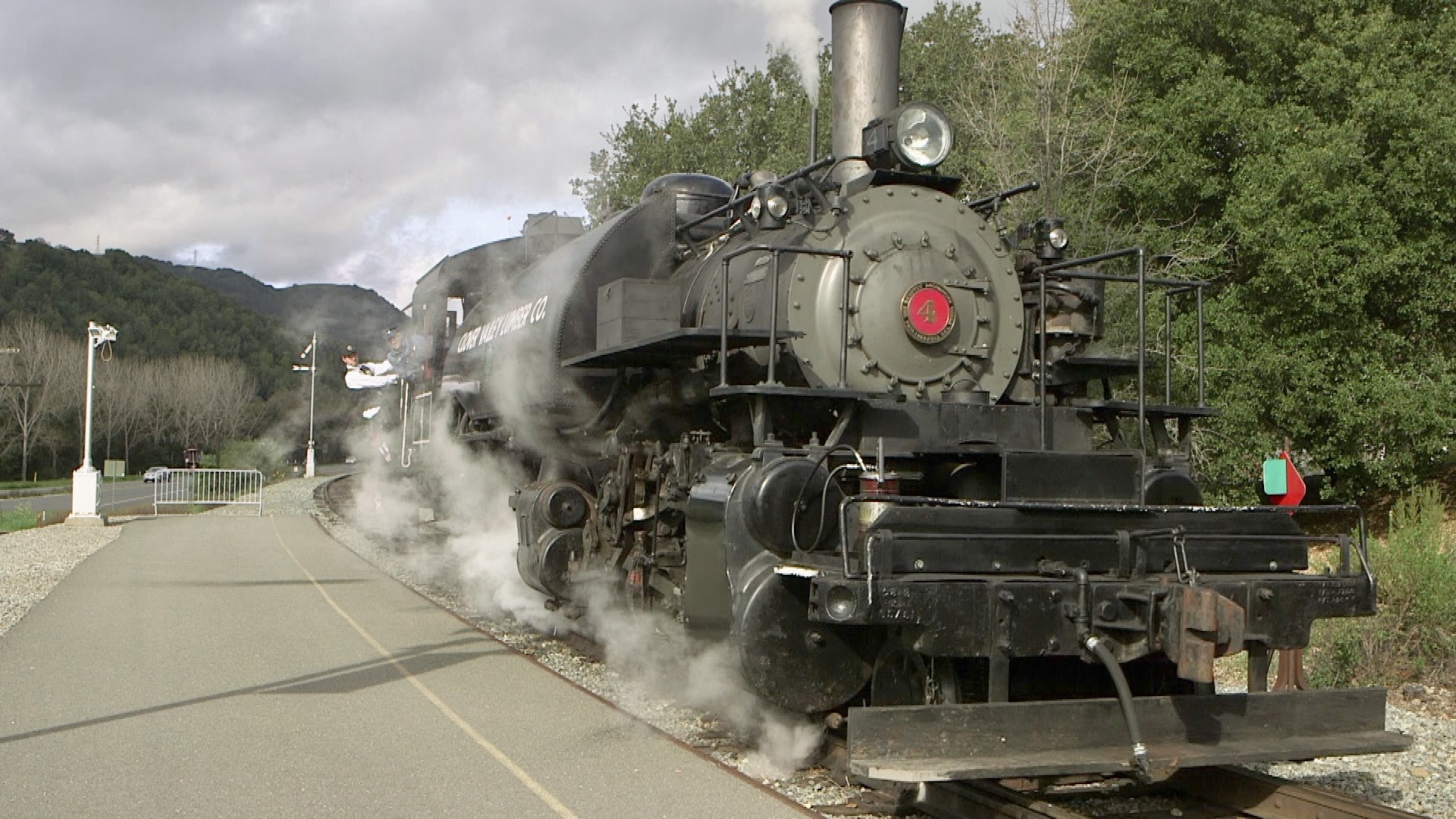In the Santa Cruz Mountains, in Big Basin Redwoods State Park, Linda Zanville recalled her first visit back following the devastating CZU Lightning Complex Fire in 2020 which scorched nearly all its forested lands.
“I’ve been hiking here for 30 years,” Zanville said clutching a walking stick, dressed in the uniform of a Wilderness Patrol Volunteer. “So after the first time it was heartbreaking.”
The park reopened two years ago, but many areas remain off-limits and massive charred tree trunks offered ample evidence of the disaster — sparked by lightning and nourished on a century of forest debris.
“I mean that’s hundreds of years worth of undergrowth, and we had that crazy lightning,” said Zanville. “And it was just like boom - out of control so fast.”
Get a weekly recap of the latest San Francisco Bay Area housing news. Sign up for NBC Bay Area’s Housing Deconstructed newsletter.

With scientists crediting climate change for fueling recent mega-fires around the state, a growing choir of park proponents are calling on the state to increase funding for its parks — with an emphasis on responding to the threats posed by climate change.
A new report by the California State Parks Foundation released in early March called attention to the impacts on climate change already occurring in parks while pointing out the need for increased funding to support a response. With the push-pull of drought, flood and fire, park supporters said state parks is grossly underfunded for the challenges ahead.
“We know going forward that this forest, and for that matter, state parks around the state are going to be facing new challenges,” said Sara Barth, director of the Sempervirens Fund, “unprecedented challenges as a result of climate change.”
Barth’s organization was founded over 120 years ago under the ideal of protecting redwood forests in the Santa Cruz Mountains. The group was instrumental in founding Big Basin Redwoods Park, California’s first state park. As she walked among its blackened trees last week, she pointed out some of the remedies increased park funding could finance.
“In this forest those restoration efforts would include things like expanded use of prescribed fire to reduce fuel loads,” Barth said, “so that future fires, which are coming, would not be as catastrophic.”
Barth’s group is calling on California’s legislature to back a bill by State Senator Ben Allen (D)Los Angeles that would place a $15 billion climate resilience bond before voters next November which would also include money for state parks. Additionally, Allen introduced a measure that would create a fund for state parks made up of philanthropic dollars and donations.
“We’re also aware that our state park’s system” Allen said, “I think has been chronically under-invested in. State Parks are beloved gems, treasures for our state.”
Inside Big Basin, Barth gestured toward a charred and disemboweled redwood trunk that did not survive the fire. It was surrounded by stands of towering redwoods, also blackened but some showing new shoots of green. If there was a silver lining to the fire, which destroyed all parks buildings — many built in a flurry of 1930s New Deal construction — it’s that 95% of the forest’s redwoods are expected to survive. Fire was not an unknown among the trees of the Santa Cruz mountains. But the changing climate has ramped-up the peril.
“It was adapted to co-exist with low intensity fires,” Barth said of the forest, “and with climate change what we’re seeing instead is incredibly intense, catastrophic fires.”
Zanville is often in Big Basin helping to guide visitors along the warren of trails and has noted the need for more resources.
“I mean there are burn piles that have been there for months and they don’t have the personnel, the funding to do it,” Zanville said. “There’s so much needed to maintain the forest, we have to maintain it - we can’t just let it do its thing or we saw what happened in the 2020 fire.”
Just over the ridge of the Santa Cruz Mountains, was another state park bearing the brunt of nature’s wrath. Winter storms in 2023 battered Seacliff State Beach in Aptos, smashing its pier and sparking landslides that have closed its campground.
The report by the California State Parks Foundation warned that rising sea levels could carve away 75% of the state’s beaches by 2100. Barth pointed to Seacliff as a location where new funding was also badly needed.
“In a place like Seacliff on the coast,” Barth said, “that kind of funding from a climate resilience for state parks would mean moving infrastructure up and away from the ocean.”
The report estimated state parks would need an infusion of more than $400 million for a wish list that included preparing for sea level rise, hiring a permanent climate resilience staff, funding wildfire mitigation and expanding the state park system.
Barth pointed toward the peak of a massive redwood — its trunk the size of an SUV — devoid of branches and blackened like a giant cinder. There among its barren tip sat a single infant branch of new needles, a sign the tree had somehow survived the 2020 inferno.
“I know if we don’t take action and we let more catastrophic fires like this one come through this park,” Barth said peering up at the branch, “these trees won’t be here in the future.”



